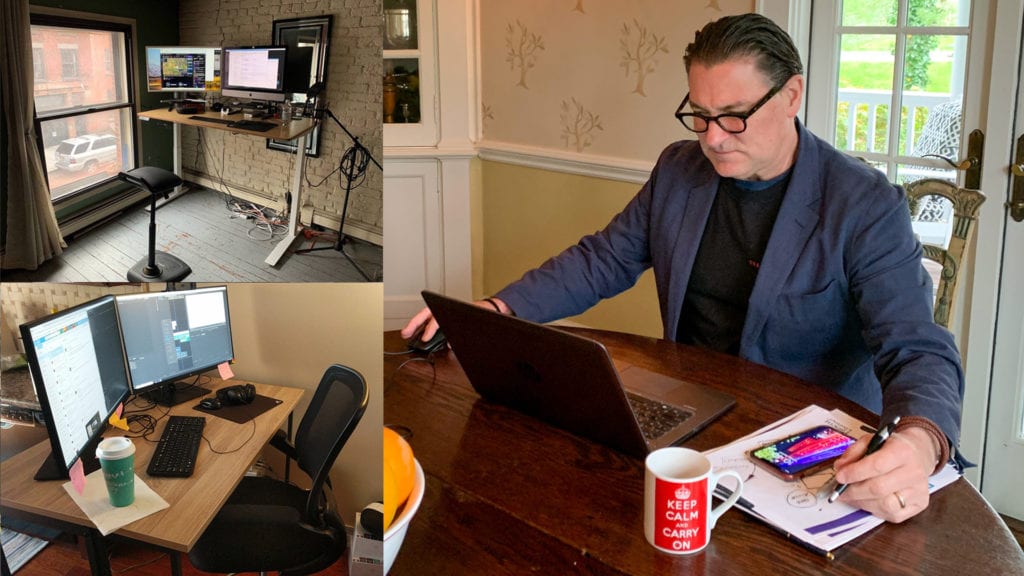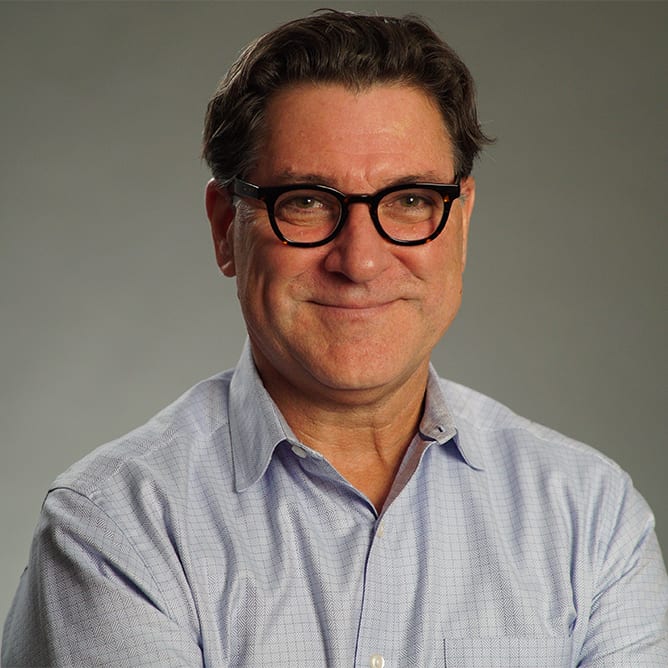Bob Peterson, executive vice president and day-to-day lead of Ketchum Studios, talks with North America Director of Client Development Denise Kaufmann about why it’s important for brands to speak out and share stories amidst uncertainty—and what it’s like to run a full-scale studio from your basement.

DK: In this environment, many clients are hesitant to say or do anything around communicating proactively with external audiences. What would you say to them?
BP: I would ask clients “how will your brand, your thought leaders and employees want to be remembered when this crisis begins to heal? What did we all do to advance the message of hope, gratitude and mutual authentic communication?” This global event may have stalled or derailed your projections and plans, but now is the time to take risks to continue to market your vision, even though it will be packaged differently. We know brands won’t necessarily have answers or solutions, but acts of acknowledgement and appreciation toward employees and consumers now will resonate and stay with people for a long time. Video content can help shape that new vision. Many of our clients were hesitant to communicate externally for obvious reasons, but saw the importance of moving quickly to define how they would be remembered for their impact right now and for acknowledging the challenges ahead.
DK: What kind of messaging works well now?
BP: Honest, human, thoughtful, empathetic messages of intelligence and resolution are what we all need. This message of strength under pressure is important for clients to share. This is the time to step up… share your story, be bold. We are doing this for clients every day, producing content that makes us smile, cry and help understand just a little bit more about ourselves and about the brands we trust and depend on. Consumers are looking for hope and encouragement that we are all in this together.
DK: Should clients tell their usual story to stay on brand? Or is it more important to adapt your messaging around what is happening in the current environment?
BP: This is an unprecedented time and something that’s been referred to as “business UNusual”. This is a time to share your brand’s core beliefs. Remind yourself of the mission statement that guides your business. Yet we know this is time to clarify that mission. Video is a powerful tool, and we see now more than ever that video is critical to your narrative. We are seeing commercials on TV and online content that seem tone-deaf and unresponsive. Contrast that with the many brands that are listening and have pivoted to sharpen their story and connect more authentically with their consumers. The work we are seeing from brands who are reacting to and reflecting this new reality are deeply moving and impactful. Don’t forget the power of marketing and communications. We need it now more than ever. How will you and your brand meet the challenge of attracting attention in this evolving ecosystem? By leaning into a smart content approach and relying on storytelling.
DK: What kind of work are you and your team doing for clients now?
BP: We are producing COVID response videos with several clients—some of those are original shoots on location that we are producing and directing remotely, while many others are videos that use existing client assets and stock footage. The work varies from thank-you messages to our healthcare heroes (digital, radio and TV broadcast), to work for our financial clients who want to reassure consumers and that they’re being protected, to videos for a client who is manufacturing a record amount of PPE to send to the front lines of the crisis. We’ve also been producing and recording several CEO COVID messages for internal distribution to thousands of employees. For example, Brooke Stelzer from our Studios team is hosting a podcast in which we talk about our client’s operations within a COVID world. We are providing consulting to influencers to guide them with best practices of filming themselves at home—and that ranges from presentation and delivery all the way through technical counseling and advising.
DK: What about clients who had other projects planned that would seem tone-deaf now. Can they can pivot? Can they turn content into smaller social cuts, or recast it?
BP: They can definitely pivot… and we can help them create that new narrative. In this landscape, I don’t feel it’s ever too late because the cultural setting is changing by the minute. We have great storytellers and writers on our team, and our past experience at broadcast networks lends itself to finding the editorial thread that will resonate with their audience. In terms of production, we have a host of solutions to create video content for clients, regardless of the communication challenges they’re facing—video, podcasts, animation, etc. We can create shorter 15 to 20-second content for social, or a 5-minute (or longer) message, creating original content or using assets that already exist. We are working closely with our clients to resource content previously filmed and update their social content to reflect “the now.”
DK: We’ve all seen the morning news, sports and late night shows hosting from their living rooms. How do you and the team do studio-level production from your homes?
BP: Many of my former colleagues are producing for TV networks right now, and I know the challenges that entails. At Ketchum Studios, we’re using the latest technology to deliver high-quality on-camera videos for our clients every day: from cooking at home and influencer work to interactive virtual content and CEO messaging.
DK: Your job is to help brands tell stories: What story would you most like to tell about yourself and your team as we move into a new normal?
BP: As this global crisis began to unfold, I witnessed a team of resilient and dedicated producers still flying around the country to capture video and important interviews for our clients and offering to film at hospitals and produce in the field. Now we realize just how perilous that is, so our teams seamlessly shifted workflow to continue to help our clients tell their stories of gratitude, hope and strength. Our team, like everyone of course, began to meet more often to not only discuss our client work, project updates and new business but to look into each other’s virtual eyes to see how everyone was doing and to collectively applaud the heroes on the front lines with awe. Our team of producers, writers, editors, creative directors have covered events that have changed history.
We are all honored to help tell our clients’ stories of hope, heroism and courage…stories that have never been more important to tell, from the people that drop off our packages and pick up our trash to our food suppliers, farmers, police, military and healthcare providers.
We will never forget the haunting images of empty cities, playgrounds, streets, stages and arenas. This is the time to come together… apart. Collectively, we have an opportunity to share your brand’s powerful message and how you will be remembered.
Reach out to Bob to discuss opportunities to visually story tell who your brand is and how it will be remembered during this crisis.




